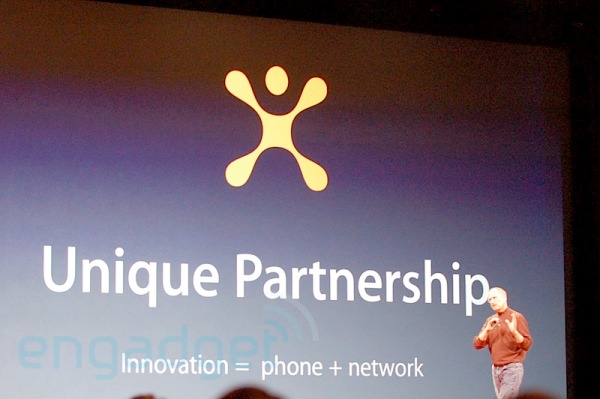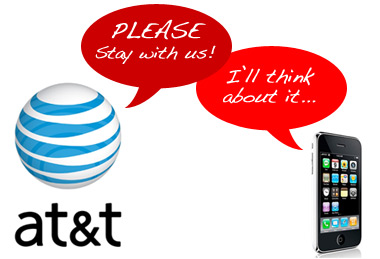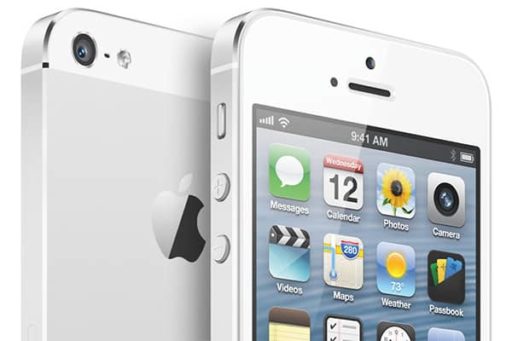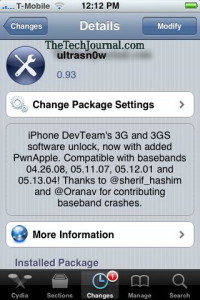AT&T’s bullish earnings report suggests iPhone exclusivity is almost over.With stronger rumors recently that Verizon or another service provider could soon be added to the iPhone carrier lineup, the question matters more than it used to.…..
The basis for this claim is experience in France and Britain. Yet, in these markets, the network comparison may not be the same as that in the U.S. Literally every iPhone owner I’ve ever known complains about AT&T. Those who switched from Verizon or Sprint reminisce about a time before dropped calls and dead zones. Considering how obsessed iPhone users are with the device, it seems obvious that many will jump at the opportunity to improve its performance.
Many iPhone contracts aren’t near expiration? This depends on your view of ‘near.’ Contracts are for a maximum of two years. That’s not a long-term commitment. Moreover, the strengthening rumors may cause people (like me) to put off buying a new iPhone after contracts have expired, hoping that a new provider will offer the device in early 2011. Plenty of people would switch between the announcement and the two years that follow.
But isn’t subscriber growth a pretty important metric for service providers? Even if only half of new iPhone owners went to Verizon instead of AT&T (and it might be more), it would amount to a nearly one-quarter drop in subscriber growth. That would hurt a lot. Investors would lose a great deal of confidence in the company’s ability to provide for strong growth going forward without iPhone exclusivity.
Even if network upgrades cause AT&T to only break even on the iPhone subscribers, that still means these customers are very profitable. They’re paying for massive network upgrades. Eventually, AT&T’s network could strengthen to be more competitive with Verizon and Sprint. iPhone users make this potential transition possible. Without them, AT&T would have far less revenue to invest in growth. Moreover, as usage-based pricing evolves, heavy users will cease to become a nuisance, and their profit margin should approach that of less intensive data users.
These carriers will have to do that anyway. Think about Sprint’s new HTC Evo. That device is virtually made for video and high resolution pictures. Verizon’s Droids also provide users with ample capabilities to consume lots of data. Even if these smartphone users aren’t yet doing so at the same rate as iPhone users, their usage will continue to grow in the years that follow. And with that additional network stress, usage-based fees are inevitable. The industry will arrive at this outcome even if AT&T keeps iPhone exclusivity.
It’s impossible to tell at this point. Alternatively, investors might just assume that AT&T is worth less than Verizon for other reasons. Does the market really believe that if Verizon got an iPhone, its potential growth would only warrant a 15% premium over AT&T’s? Maybe, but others might think that premium should be even greater. Currently, AT&T’s stock price must assume only some probability (less than 100%) that Verizon gets the iPhone.
You can tell a product ranks high in the public consciousness when something like this is news: AT&T’s quarterly earnings report makes it sound like the telecom may finally lose its iPhone exclusivity deal. While a class-action lawsuit recently confirmed the handset was originally locked to AT&T / Cingular for a full five years, the company’s Q2 SEC filing has the company making a considerable number of familiar excuses why AT&T’s cellular business will thrive even “as these exclusivity arrangements end.
” While the iPhone isn’t mentioned by name, it’s hard to imagine sentences like “We believe offering a wide variety of handsets reduces dependence on any single handset” could refer to anything else but before you start defecting to Team Red, know there’s nothing in there that suggests a date, much less proof of the fabled CDMA iPhone.
Resources :theatlantic.com,engadget.com





Pingback: Private Servers